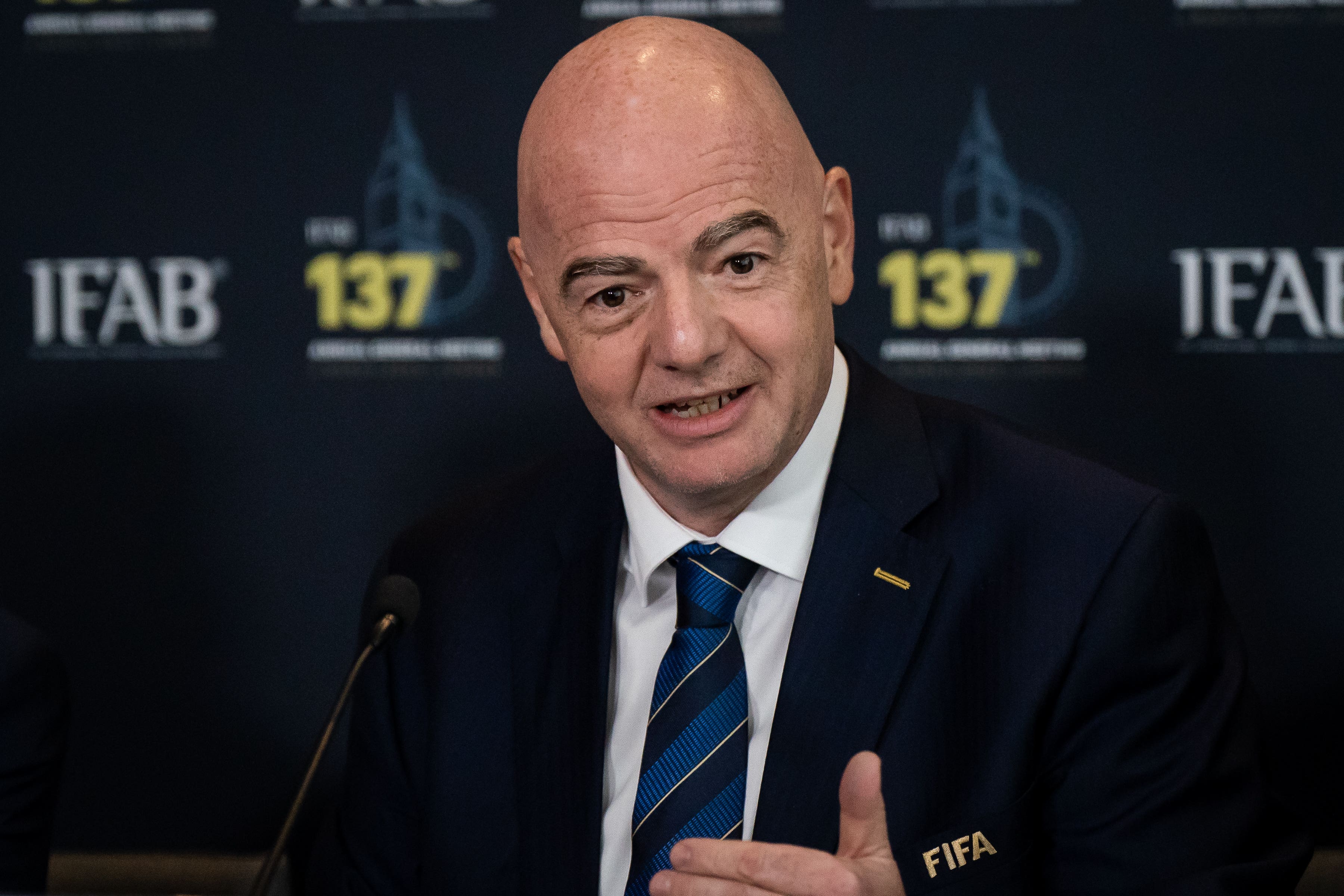Footballers’ unions take legal action against FIFA over ‘unworkable’ calendar
PFA chief executive Maheta Molango says football cannot be “exempt” from labour laws.

Your support helps us to tell the story
From reproductive rights to climate change to Big Tech, The Independent is on the ground when the story is developing. Whether it's investigating the financials of Elon Musk's pro-Trump PAC or producing our latest documentary, 'The A Word', which shines a light on the American women fighting for reproductive rights, we know how important it is to parse out the facts from the messaging.
At such a critical moment in US history, we need reporters on the ground. Your donation allows us to keep sending journalists to speak to both sides of the story.
The Independent is trusted by Americans across the entire political spectrum. And unlike many other quality news outlets, we choose not to lock Americans out of our reporting and analysis with paywalls. We believe quality journalism should be available to everyone, paid for by those who can afford it.
Your support makes all the difference.Footballers’ unions have followed through on a threat to take legal action against FIFA over the sport’s “unworkable” calendar.
Europe’s highest court will be asked to rule whether the EU Charter of Fundamental Rights – including Article 5 which prohibits slavery and forced labour – has been breached by football’s global governing body in its decision to introduce a 32-team Club World Cup.
Maheta Molango, the chief executive of the English players’ union, the Professional Footballers’ Association, insists football cannot be “exempt” from rules around workers’ rights.
His organisation, along with the French union UNFP and the European division of world players’ union FIFPRO, has submitted a claim to the Brussels Court of Commerce.
The unions want the Belgian court to refer the complaint to the European Court of Justice to make a preliminary ruling, before sending the matter back to Belgium for a final judgement.
Leading the legal challenge on behalf of the unions is Jean-Louis Dupont, part of the team which secured the landmark Bosman ruling in 1995 which revolutionised the transfer market.
Unions and the World Leagues Association wrote to FIFA last month threatening action if the Club World Cup – which is due to start on June 14 next year – was not rescheduled.
That competition’s introduction is seen by the PFA as a tipping point which is part of a wider problem.
Molango is understood to have stressed in conversations with members that although each edition of the competition may only involve a relatively small number of players, FIFA’s move cannot go unchallenged because it then leaves open the possibility of other football authorities and competition organisers introducing events unilaterally and without first reaching a collective agreement with unions.
Standard player contracts in England stipulate that clubs should not unreasonably refuse a request for a three-week consecutive period of annual leave, where a player can take a total close-season break and recharge ahead of the next campaign.
Everyone across football knows that the fixture calendar is broken to the point that it has now become unworkable.
The PFA believes the timing of the Club World Cup would make it impossible for clubs to fulfil their contractual obligations to players without harming their own preparation for the domestic campaign ahead.
“Everyone across football knows that the fixture calendar is broken to the point that it has now become unworkable,” Molango said on Thursday morning.
“The most in-demand players are now part of an endless schedule of games and competitions for club and country, with their limits constantly being pushed through expansion and the creation of new competitions.
“I am constantly told by those members that what they want is a properly protected break where they can rest and recharge. Those who run the game know this. We have made sure they have heard it directly from players, but nothing has been done.
“There are too many emerging instances across football where the rights of players, and the legal implications of decisions by governing bodies and competition organisers, are seen as something that can just be ignored.
“Too many within football act like it is exempt from the normal requirements of employers and employees.
“Players are not being listened to and they want to see action. As their union, we have a duty to intervene and to enforce their legal rights as employees. Ultimately, that time has now come.”
FIFA has not yet commented but sources close to the governing body point out that the international calendar was agreed by its ruling Council, which features representation from all continental confederations including Europe.
Those sources also insist the calendar was the result of extensive consultation and reject the suggestion that it was imposed on the football community – something which the unions and leagues vehemently dispute.
The PFA points out that the 2024-25 season is set to roll almost without any stoppage into 2025-26.
The Premier League season will finish on May 25, with the Champions League final scheduled for May 31. There is then an international window between June 2 and 10, before the Club World Cup gets under way in the United States on June 15 and runs to July 13, by which time club pre-season programmes will be up and running before the Premier League starts again in mid-August.